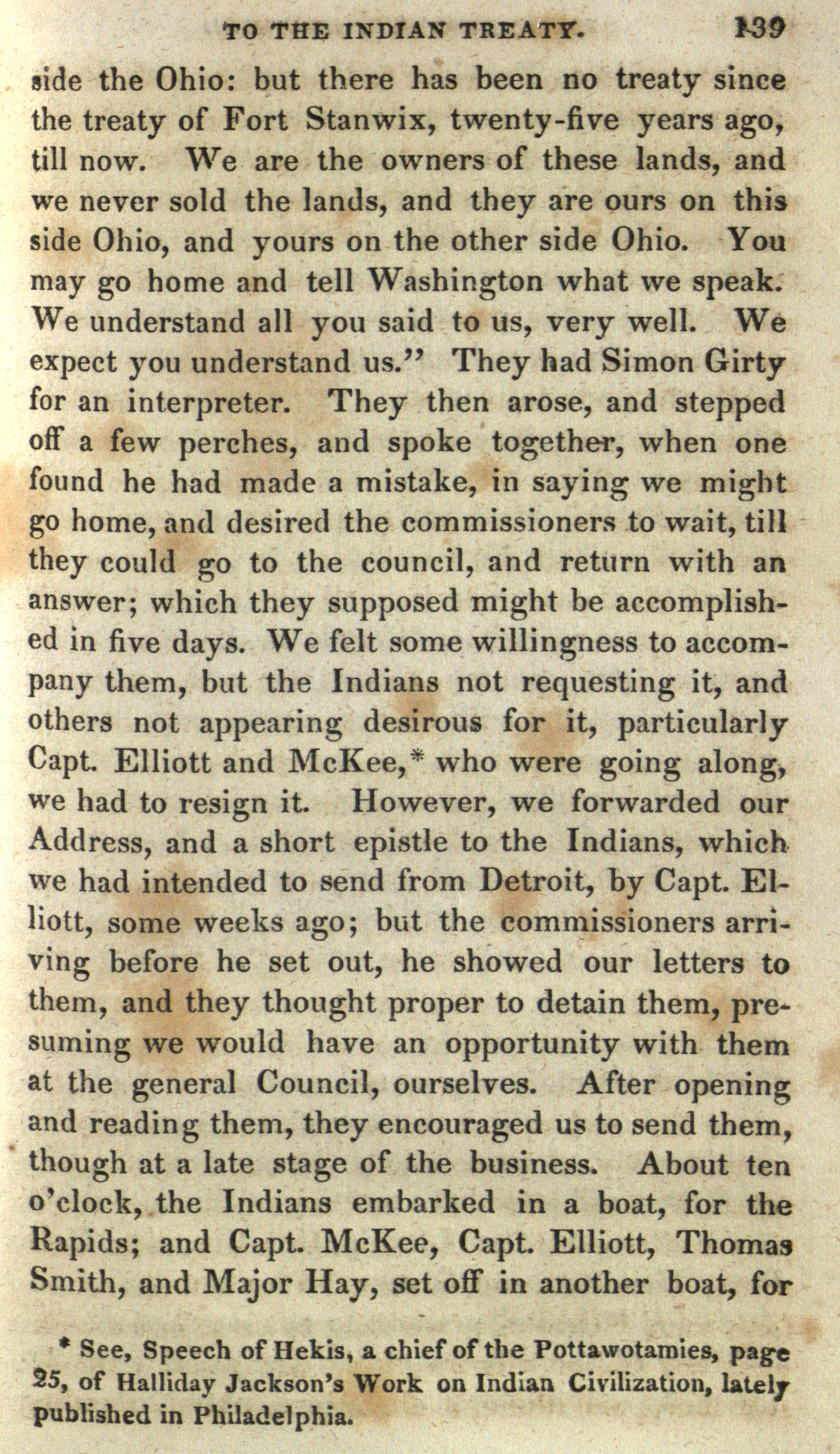side the Ohio: but there has been no treaty
since
the treaty of Fort Stanwix,
twenty-five years ago,
till now. We are the owners of these lands,
and
we never sold the lands, and they are ours on this
side Ohio, and yours on the other side Ohio. You
may go home and tell Washington what we speak.
We understand all you
said to us, very well. We
expect you understand us. They had Simon Girty
for an interpreter. They then arose,
and stepped
off a few perches, and spoke together, when one
found he had
made a mistake, in saying we might
go home, and desired the commissioners to
wait, till
they could go to the council, and return with an
answer;
which they supposed might be accomplish-
ed in five days. We felt some
willingness to accom-
pany them, but the Indians not requesting it,
and
others not appearing desirous for it, particularly
Capt. Elliott and McKee,* who were going along,
we had to resign it. However,
we forwarded our
Address, and a short epistle to the Indians, which
we
had intended to send from Detroit by
Capt. El-
liott, some weeks ago; but
the commissioners arri-
ving before he set out, he showed our letters
to
them, and they thought proper to detain them, pre-
suming we would
have an opportunity with them
at the general Council, ourselves. After
opening
and reading them, they encouraged us to send them,
though at a
late stage of the business. About ten
o'clock, the Indians embarked in a
boat, for the
Rapids; and Capt. McKee, Capt.
Elliott, Thomas
Smith, and
Major Hay, set off in another boat, for
25, of Halliday Jackson's Work on Indian Civilization, lately
published in Philadelphia.

